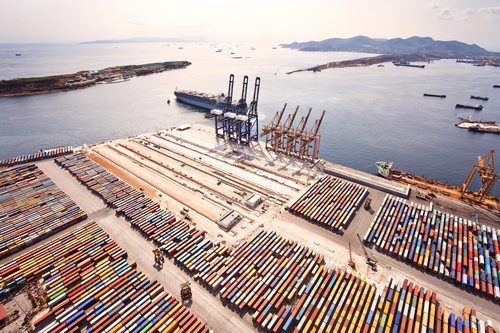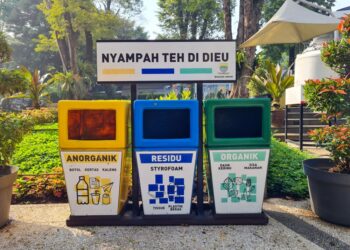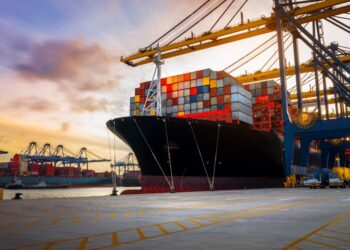The online E-Scrap News article appearing last week entitled “Can export incentives help clean up Agbogbloshie?” announces a new program to improve the infamously polluted and polluting scrap recycling operations in the Agbogbloshie area of Accra, Ghana.
The specifics provided in the article are scant and the story is missing details such as: Does the program exist? Who are the participants? Are the recyclers certified? Is the program approved by the Ghanaian government? And, most pointedly, is it legal?
Indeed, the article seems designed to cast a rosy but vague glow while avoiding the salient issues on exports of e-waste and used electronic equipment to developing countries.
Is is legal?
First, the article is silent on the issue of whether the proposed exports in the new program would be legal. Crucial to that determination is the question as to whether the imported electronic devices are tested and certified as fully functional prior to their export.
If the used equipment is exported as fully functional equipment and there is a market for the equipment, then under laws in most countries, these shipments to Ghana are considered exports of products and not wastes. Consequently, unless there are additional national laws to consider, they would be legal.
However, if the used electronic devices are intended to be exported either untested or tested and shown to be non-functional, then the “export incentive” and “fair trade” proposal is more than likely to be illegal and a criminal act. The Basel Convention parties, including Ghana and virtually every country in the world except the United States, generally consider non-functional electronic equipment to be hazardous waste. As such, because the U.S. is a non-party to Basel, Ghana is legally forbidden to import any kind of hazardous wastes from the U.S.
Further, the Bamako Convention, which bans all forms of hazardous wastes into the continent of Africa, decided at its first meeting to unequivocally declare untested or non-functional electronic equipment to be a hazardous waste.
While Ghana has not as yet ratified the Bamako Convention, John Pwamang, acting director of the Ghana Environmental Protection Agency, in a June 3 email to the Basel Action Network affirmed that Ghana is in the process of ratifying the Bamako Convention and currently adheres to its policies and rules.
The fact that the program described in last week’s E-Scrap News story appears to have been announced with seeming disregard to, or even mention of, potentially deal-breaking international laws (Basel and Bamako Conventions) as applied by parties to them, it may mislead readers and have the unfortunate effect of attracting exporters that could wind up being prosecuted for illegal trafficking in hazardous waste.
If this is not the case, and the initiative involves the export of fully functioning products, then the effort could theoretically be a worthy one in relieving the imported toxic burden when the imported used equipment reaches end of life. But such models would come with other concerns. In fact, such models have been in existence for some time, but face serious challenges.
Learning from WorldLoop experience
BAN was an early supporter of a model of pre-funded takeback of end-of-life electronics in Africa for proper recycling. The organization known as WorldLoop has been doing this for many years. Charities that offer donated equipment for refurbishment and subsequent export to the developing world are encouraged to purchase off-setting certificates from WorldLoop. These certificates fund the proper collection and responsible recycling of e-waste that arises in the developing world.
WorldLoop projects will often use the funds to export the collected waste to developed countries as certain fractions cannot be safely managed in countries where the material has been collected. But WorldLoop projects strictly adhere to the Basel Convention and Bamako Convention for all exports and imports.
While we would encourage similar innovative, legal takeback programs for Africa, the designers of such programs would be well-advised to contact WorldLoop and learn from that group’s experience. They will likely learn that such efforts are not as easy as they might appear on paper and that it can be challenging both to find donors/exporters willing to fund proper recycling and to establish permitted certified recyclers and refurbishers in Africa.
Message being sent by developing countries
Furthermore, it must be mentioned that those of us seeking to solve problems for developing countries should first listen to them and the clear signals they are sending. More and more, developing countries are erecting trade barriers and restrictions to imported electronic waste for important reasons. We have seen the evidence of this with the Bamako decision noted above, China’s Green Fence and National Sword initiatives to restrict unwanted scrap, Hong Kong’s new ban on bulk circuit boards to add to its ban on CRTs and mercury-containing devices, and India’s e-waste import ban.
At the most recent Basel Convention meeting in late April of this year, there was a consensus to establish an Intersessional Working Group to close loopholes in the Guideline on the Transboundary Movement of e-Waste for exports of e-waste that might be allowed under export shipments claimed for repair.
In the case of this new so-called “fair trade” Ghana plan, we wonder if the proponents have actually spoken to the Ghanaian government or the Basel Convention Regional Centers in Ibadan, Nigeria or Dakar, Senegal and received their advice and blessing. Before announcing new programs that may violate policies and laws of importing countries in Africa, such conversations might be a good place to start.
The ‘near end of life’ crackdown
This is especially important due to another recent development being initiated by developing countries. Many are putting in place new import restrictions based on the age and type of electronic equipment – even when that equipment is functional.
This new class of unwanted imports is often referred to as “near end of life” equipment that may not technically be defined as “waste” because of its functionality but may become waste very quickly after secondhand consumption. Controlling the import of this equipment remains the subject of debate at the Basel Convention and is part of a new mandate for exploration by the aforementioned Special Intersessional Working Group.
Already, countries such as China, Egypt and Nigeria have or are considering adopting age limitations for imports, or forbidding obsolete equipment such as CRT monitors. The Bamako Convention, in its e-waste decision from its first meeting, called on parties and other African states to adopt legislation to control the importation of near-end-of-life or unwanted equipment by designating it hazardous waste.
Time to listen
Viewing the full picture painted above of what African nations require and want prescribes that exporters be vigilant so as not to be embroiled in prosecutions. Customers of recyclers should be aware of the pitfalls and only utilize recyclers that recognize and are certified to following the waste trade rules of the road. Leaders of new programs such as that just proposed in the name of “fair trade” would be wise to understand the legal landscape and to focus on high-end, marketable, refurbished, fully functional equipment with a long useful life ahead of it.
There is, in fact, a truly responsible way to address the digital divide across continents and communities – and developing countries are pointing the way.
They seem to be saying, “Don’t give us your poor, your muddled masses of e-waste that are likely to end as wretched refuse on our teeming shore.” These countries are making it clear they need working equipment together with a sound plan for its end-of-life stage. In this way, exports will truly serve to bridge the digital divide without turning developing nations into digital dumps.
Let’s listen to those concerns.
Jim Puckett is executive director and founder of the Basel Action Network, administrator of the e-Stewards certification for electronics recycling and refurbishment. He can be contacted at [email protected].





























